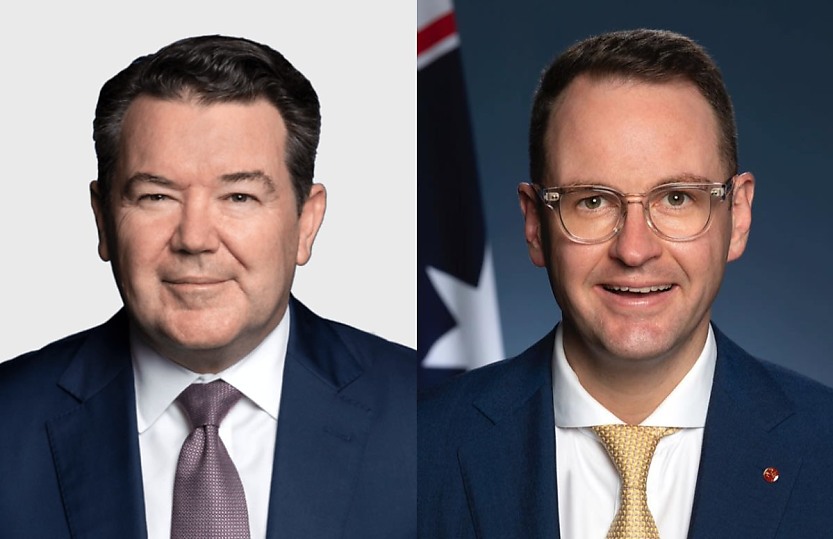PRRT deductions cap gets Senate Committee green light

A Senate committee has voted to endorse the government’s proposed PRRT deductions cap, despite cross-divide beliefs Labor’s manoeuvring had undermined genuine reform.
In approving the government’s proposed cap on petroleum and resource rent tax (PRRT) deductions, several Senate committee members took the opportunity to criticise Labor’s approach to getting the bill passed.
The bill will introduce a 90 per cent cap on allowable PRRT deductions, forcing gas companies to pay more for using the country’s natural resources.
Currently, gas companies begin paying the PRRT only once they are making profits. Given gas projects often take many years to begin generating profits, several gas companies – including Shell and Chevron – have not paid a dollar in PRRT.
PRRT reform has been on the national agenda for years, though the precise instrument used to enact the government’s changes has raised eyebrows from across the political divide.
The Treasury Laws Amendment (Tax Accountability and Fairness) Bill is an unexpected marriage.
Schedules 1-4 form part of the government’s response to the PwC tax leaks scandal, including reforms to promoter penalty rules and extended tax whistleblower protections while the fifth schedule is solely dedicated to the PRRT deductions cap.
Many witnesses and committee members argued the pairing detracted from genuine debate around the contents of either aspect of the bill.
“Taking steps to remedy the PwC and consultants scandal and Australia’s broken gas super profits tax laws are completely separate but important issues that should never have been merged together into one Bill,” wrote Greens Senator Nick McKim and Senator Barbara Pocock in their dissenting report attached to the broader committee report.
Their first recommendation was to split the bill by subject matter so that the two could be treated separately.
Dissenting Coalition senators made a similar point, noting that the combination of the two reform areas was a calculated political move by the federal government.
“Since these measures were announced, the Coalition has consistently attempted to engage in a constructive dialogue with the government. Unfortunately, the government has sought to politicise this reform from the beginning,” wrote Senator Andrew Bragg and Senator Dean Smith.
“By combining Schedule 5 with its legislative response to the PwC tax leak, the government sought to wedge the opposition and the crossbench, and stymie consultation and scrutiny.”
“The government’s decision to attach two unrelated measures to one bizarre piece of “wedge-isolation” demonstrates the seriousness with which it approaches these issues.”
Despite the criticisms, the committee voted to endorse the 90 per cent deductions cap, noting that it struck an appropriate balance between bringing forward tax revenues and facilitating a stable and competitive resources sector.
“The committee welcomes that this reform means the offshore LNG industry will pay more tax sooner and provide industry certainty to ensure Australia remains a reliable energy supplier and investment partner,” the report said.
“The committee shares the view of inquiry participants that the bringing forward of revenue that would otherwise be years away as a result of this bill is very welcomed.”
Industry representatives consulted by the committee were generally supportive of the 90 per cent cap while others, including committee members, maintained it did not go far enough.
The Australian Greens, for instance, recommended in their dissenting reporting that the cap should be 80 per cent, meaning taxes should be at least equivalent to 20 per cent of gas project revenues.
Similarly, the Australia Institute claimed that even a 60 per cent deductions cap would generate a modest amount of revenue compared with the forecast revenue of LNG exports.
It added that the PRRT, in its current form, was unnecessarily complicated in a way that allowed taxpayers to skirt their responsibilities.
In their evidence to the committee, the institute pointed out that in 2021–2022, the oil and gas industry paid the equivalent of 1 per cent of their incomes under the PRRT, while many paid nothing in several recent years.
Infamously, as noted in several submissions, the government collects more revenues from student loan repayments than it does from the PRRT.
Professor Rod Sims submitted that a 66 per cent cap would be more appropriate, adding that it would approximately triple the revenues collected under the PRRT.
Senator David Pocock, a member of the Senate committee, wrote that the bill failed to guarantee a “fair return” on Australian resources. His critiques went to the very foundations of the PRRT, claiming it was “prone to gaming and avoidance.”
Absent more fundamental reform, he pushed for the deductions cap to be lowered to 80 per cent or less.
“It makes no sense to allow gas companies to continue to avoid paying a fair price for our resources while bracket creep forces working Australians to pay higher and higher rates of income tax,” he wrote.
“Australians are buckling under the pressure of a cost-of-living crisis while gas companies make record profits on the back of a wartime boom in gas prices. It’s not equitable and it’s not right.”
About the author

